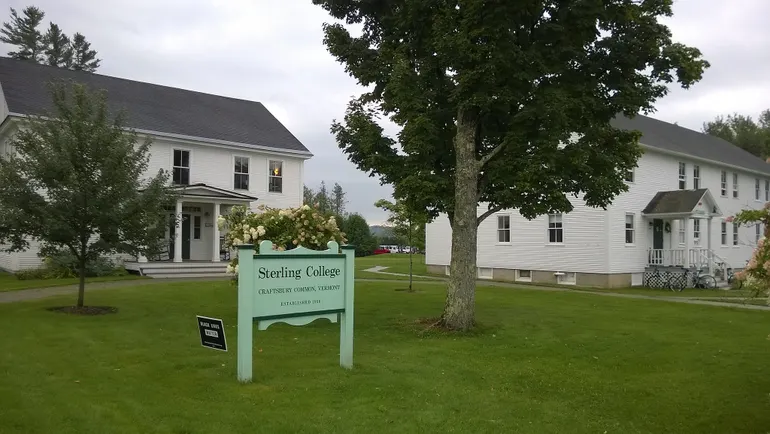Listen to the article
Dive Brief:
Sterling College, in Vermont, plans to close after its spring 2026 semester in response to enrollment declines and financial pressure, the private institution announced Wednesday.
The environmental studies-focused college will end its associate and bachelor’s programs following the spring semester, after which it plans to operate its summer internship program, depending on student need.
In its announcement, Sterling said that its governing board’s decision to close “reflects the College’s commitment to transparency, responsibility, and care in the face of persistent financial and enrollment challenges.”
Dive Insight:
Fewer than 40 students are at Sterling for the current semester, with about 30 faculty and staff members running the college, the institution’s president, Scott Thomas, told a local media outlet this week.
Closing now “allows us to responsibly support students through their continuing time at Sterling and assist with transitions to partner institutions,” the college said in a FAQ about its closing.
Sterling is finalizing several teach-out agreements with regional peers College of the Atlantic, Community College of Vermont and Champlain College, all of which will require the approval of its accreditor, the New England Commission of Higher Education. The college will hold its final commencement in May, it said.
Just between 2021 and 2023, the small college’s enrollment fell by just over 38% to 78 students, according to federal data.
Sterling’s tuition revenue declined with the shrinking student body. Between fiscal years 2021 and 2024, net tuition and fee revenue dipped 10.3% to about $835,700.
The college was also heavily dependent on private grants to sustain it. In 2024, for example, it logged $4.9 million in grant revenue, most of it restricted. However, the college’s endowment was relatively paltry. Its total investment assets amounted to $1.2 million in 2024.
Founded over 65 years ago, Sterling offers bachelor’s and associate degrees only in environmental studies. Bachelor’s students have the option to pursue self-directed concentrations in topics under the environmental umbrella, such as ecology, natural resource management and social justice.
The college touts outdoor learning and its experiential approach. Along with NECHE, it is accredited by the Association for Experiential Education, and it is one of a handful of federally recognized work colleges, which require students have work at least 80 hours per semester as part of their educational program.
Based in Craftsbury, Vermont, Sterling owns forest, wetlands, a farm, a yurt, a climbing wall and 307 acres in nearby Bear Swamp. The college encourages students to camp for short periods on campus property and allows them to hunt, fish and trap during designated seasons outside the campus center.
The college’s property was valued at $3.4 million in fiscal 2024. Sterling said the board will later decide “how to steward the College’s remaining resources in a manner consistent with its mission and all applicable legal requirements.”
Given the possibility of running its internship program through August “if needed,” the college noted that “it is, as yet, unknown if and when College operations will cease entirely.”



























